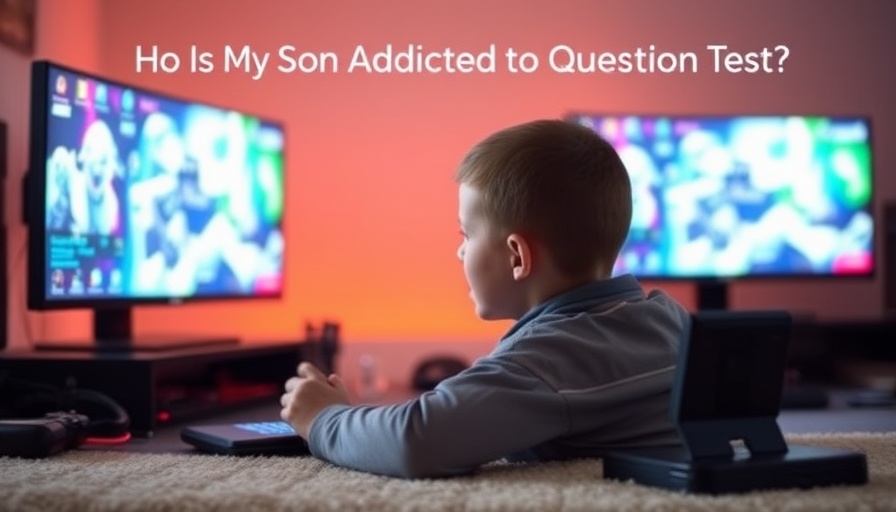
Understanding Video Game Addiction in Children
In recent years, the conversation around video game addiction has intensified, especially concerning young children. A new study suggests that video game addiction can begin as early as elementary school, raising alarms for parents and caregivers.
The Rise of Gaming: What Parents Should Know
Today's children are growing up in a digital age where video games are woven into the very fabric of their social interactions and entertainment. According to the study, the structure of games can hook players emotionally, creating an environment that can lead to addiction. As parents, it's crucial to recognize that what may start as harmless play can evolve into problematic behavior.
Signs of Video Game Addiction to Look For
It can be difficult to pinpoint whether a child is experiencing addiction rather than just enthusiastic engagement. Look for signs such as:
- Withdrawal Symptoms: Irritability or sadness when unable to play.
- Neglecting Responsibilities: Schoolwork or chores consistently being ignored.
- Social Isolation: Spending less time with family or friends in favor of gaming.
Why Early Intervention Matters
Studies indicate that the earlier a child begins playing video games, the higher the risk of developing addiction issues. Early intervention can make a significant difference. Encouraging alternative activities such as sports, reading, or outdoor play can help develop well-rounded interests beyond the screen.
Actionable Tips for Parents
If you're concerned about your child's gaming habits, consider implementing these strategies:
- Set Screen Time Limits: Establish daily or weekly time restrictions on gaming to encourage balance.
- Encourage Offline Activities: Facilitate device-free weekends or family game nights that don't involve screens.
- Stay Informed: Familiarize yourself with the games your child is playing, and discuss the content with them.
Fostering Open Communication
Creating a safe space for your child to discuss their gaming experiences opens the doors to healthy dialogue. Ask questions about what they enjoy in their games, and listen attentively. This not only allows you to understand their interests better but also helps them feel valued and understood.
Building a Supportive Environment
Consider organizing family activities that seamlessly integrate technology limits without appearing punitive. Involve your child in planning outdoor adventures or crafts, fostering a connection that goes beyond screens. By creating a balanced lifestyle, we encourage healthier habits that last a lifetime.
Final Thoughts on Video Game Addiction
Recognizing the signs of video game addiction and taking proactive measures is essential for parents steering their children toward healthy habits. By promoting device-free activities, setting boundaries, and fostering open conversations, you can protect your child from the snare of video game addiction, helping them develop a love for life beyond screens.
Take Action Today
As parents, it’s never too late to have an impact on your child’s relationship with gaming. Start today by engaging in activities that foster creativity and connection, ensuring a balanced approach to entertainment.
 Add Row
Add Row  Add
Add 




Write A Comment